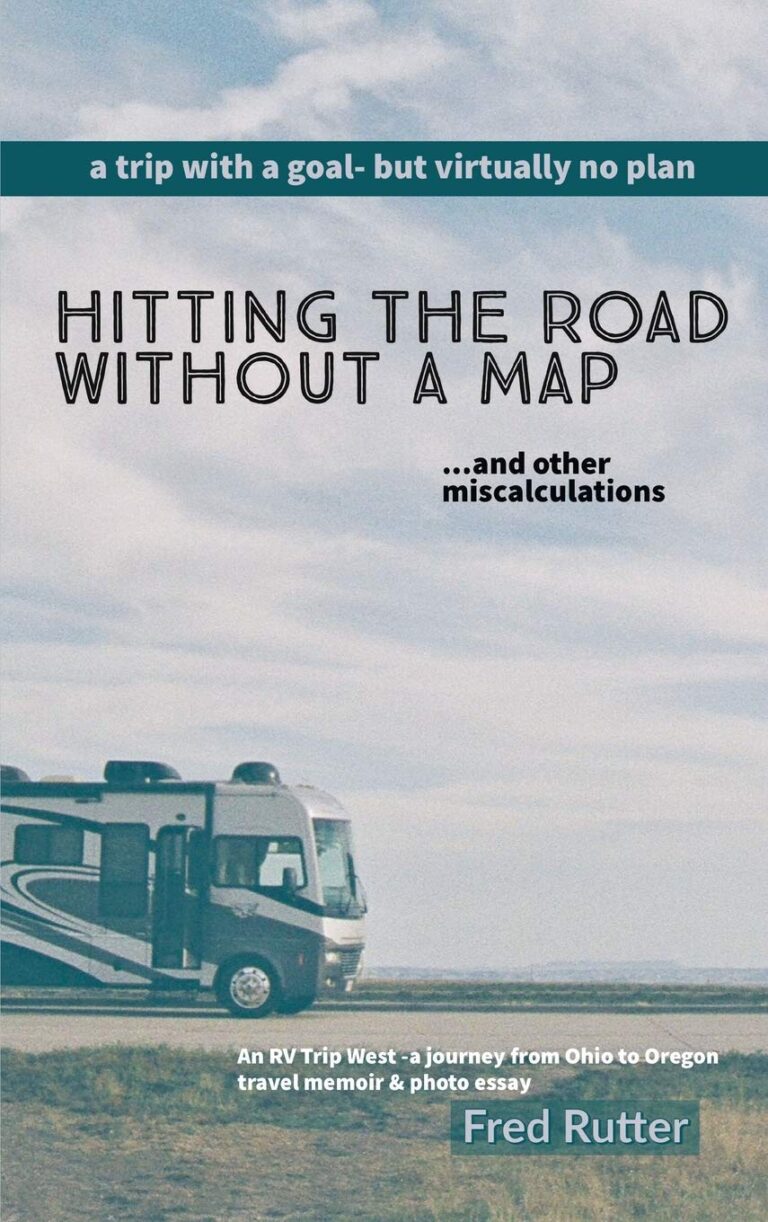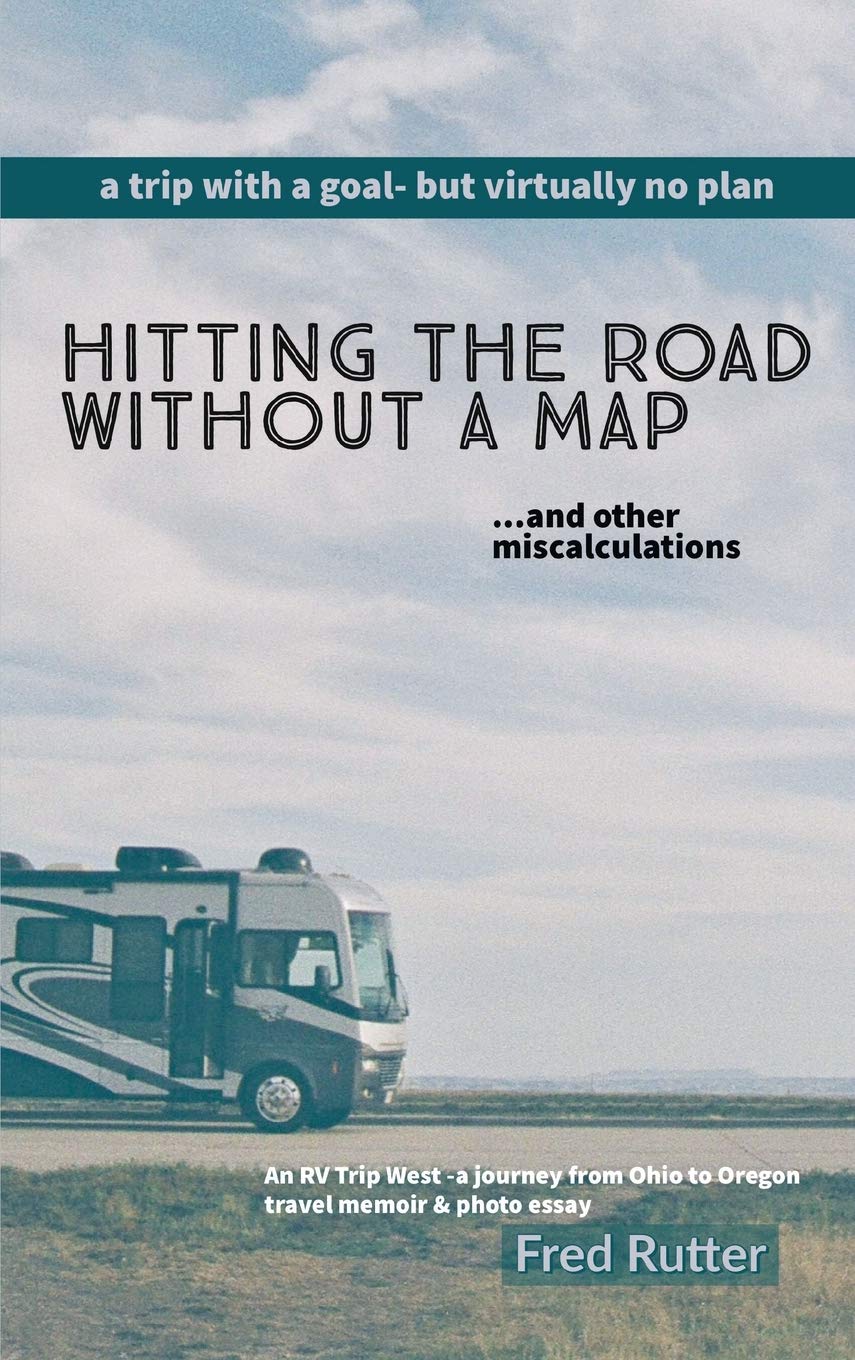The Preface and Introduction of HITTING THE ROAD WITHOUT A MAP start on a promising note– a moving reflection on undertaking a great adventure with the continuing realities of maintaining sobriety and living with mental illness, and an eloquent summation of the nature of journey and personal transformation. The reader is led to expect a depth of insight and scope of experience in the following chapters that, unfortunately, doesn’t often materialize. When the opening chapters’ description of the trip’s origin seems overly long and every possible plan/phone call/scheduling snafu is spelled out, we assume some of this minutiae will be essential to the plot, only to discover that this rather tedious amount of detail is to be the style of the entire narrative. Perhaps the magic that author Fred Rutter felt while searching for new parts for the RV exhaust fan and deciding on which candy to choose at a dumpy gas station would have fared better in the hands of a more skilled chronicler, but he doesn’t seem to be able to raise the piecemeal particulars to the level of a cohesive journey saga. It’s obvious that Rutter can write– see Preface/Introduction comment above– but wading through the bland journaling and banal specifics to get to the meat of his story is somewhat wearying. A self-confessed “history geek”, the story fares best when Rutter writes passionately about bearing witness to sites and objects he’d only read about, such as driving through the Reservation of the Oglala Lakota Sioux tribe, or seeing Howard Hughes’ massive cargo plane, The Spruce Goose.
Rutter makes a valiant attempt to render the story more interactive and conversational by adding chunks of dialogue, but the stilted exchanges only serve to underscore the awkwardness of his journaling style. Everyone speaks in formal sentences with very few contractions, such “But more important, it is on our side of the street and it has a ton of parking, even though it is built into the side of a hill” or “I will take over driving. You have had your fun with the wind for several hours. Now it is my turn.” With the help of an editor to make his dialogue more believable, help him trim some of the excessive, unnecessary detail that slows the pace of the book, and craft a better through-line, HITTING THE ROAD WITHOUT A MAP would benefit greatly and Rutter’s journey of the soul would resonate more effectively; it’s obvious that he felt the magic and spiritual transformation of his adventure and we’d like to feel it, as well.
HITTING THE ROAD WITHOUT A MAP, the saga of author Fred Rutter’s RV journey from Ohio to Oregon, has some nice photography and fun historical musings on various locations, but ultimately suffers from stilted dialogue and an overabundance of mundane detail.
~Shari Simpson for IndieReader


